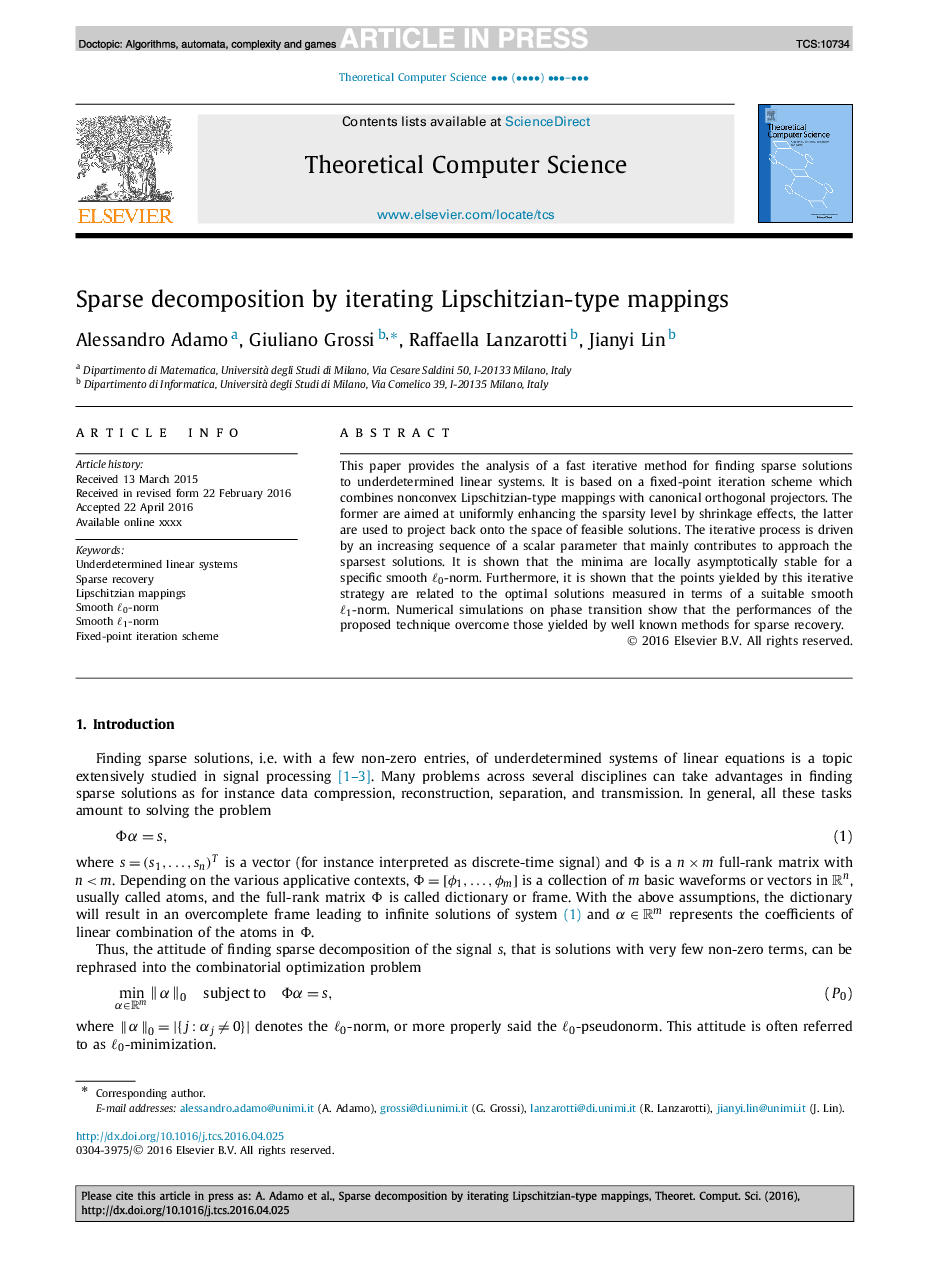| Article ID | Journal | Published Year | Pages | File Type |
|---|---|---|---|---|
| 4952260 | Theoretical Computer Science | 2017 | 17 Pages |
Abstract
This paper provides the analysis of a fast iterative method for finding sparse solutions to underdetermined linear systems. It is based on a fixed-point iteration scheme which combines nonconvex Lipschitzian-type mappings with canonical orthogonal projectors. The former are aimed at uniformly enhancing the sparsity level by shrinkage effects, the latter are used to project back onto the space of feasible solutions. The iterative process is driven by an increasing sequence of a scalar parameter that mainly contributes to approach the sparsest solutions. It is shown that the minima are locally asymptotically stable for a specific smooth â0-norm. Furthermore, it is shown that the points yielded by this iterative strategy are related to the optimal solutions measured in terms of a suitable smooth â1-norm. Numerical simulations on phase transition show that the performances of the proposed technique overcome those yielded by well known methods for sparse recovery.
Related Topics
Physical Sciences and Engineering
Computer Science
Computational Theory and Mathematics
Authors
Alessandro Adamo, Giuliano Grossi, Raffaella Lanzarotti, Jianyi Lin,
